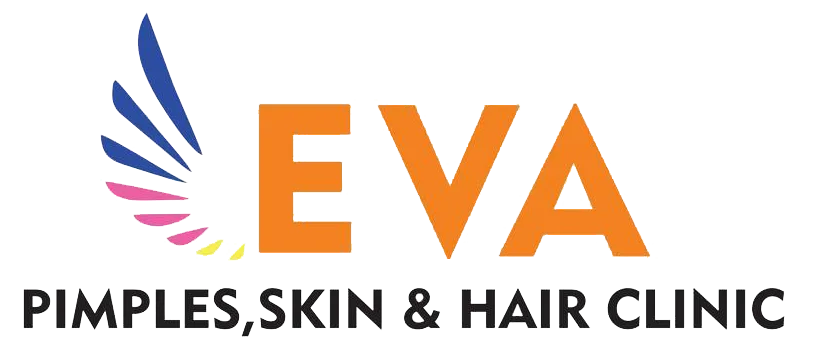Hair Loss (Baldness)
Treatment in Pune
Don’t Just Cover Bald Spots—Restore Them
Hair loss (Baldness), also known as alopecia, refers to the partial or complete shedding of hair from the scalp or other parts of the body. It is a common condition that affects both men and women and can occur at any age. While it is normal to lose 50 to 100 strands of hair a day, excessive hair fall or thinning can indicate an underlying problem.
Hair loss can be temporary or permanent and may result from various causes, including genetics, hormonal changes, nutritional deficiencies, stress, autoimmune disorders, scalp infections, or harsh hair care practices. In men, it often presents as a receding hairline or bald patches, while in women, it usually manifests as diffuse thinning across the scalp.
Early diagnosis and appropriate treatment play a crucial role in managing hair loss effectively. At Eva Pimples, Skin & Hair Clinic, Pune, we offer advanced, customized hair loss treatments designed to target the root cause and promote natural hair regrowth, helping you regain confidence and a fuller head of hair.
Everything to know about Hair Loss (Baldness) Treatment
- Causes
- Types
- When To See Dermatologist
- How to Treat
Hair loss can occur due to a wide range of factors—some temporary, others more permanent. Understanding the root cause is essential for selecting the most effective treatment. Here are the most common reasons behind hair fall:
Also known as Androgenetic Alopecia, this is the most common cause of hair loss in both men and women. It’s a gradual process that often results in a receding hairline or thinning crown.
Conditions like PCOS, thyroid disorders, pregnancy, menopause, or birth control pills can disturb hormonal balance and lead to significant hair shedding.
Lack of essential nutrients such as iron, vitamin D, zinc, and biotin can weaken the hair roots and disrupt healthy growth cycles.
High emotional or physical stress, inadequate sleep, crash dieting, and smoking can all trigger a condition known as telogen effluvium, causing sudden and temporary hair loss.
Chronic illnesses like diabetes, autoimmune disorders (e.g., alopecia areata), or scalp infections such as ringworm can result in patchy or widespread hair loss.
Certain medications for cancer, depression, blood pressure, or arthritis may list hair loss as a side effect. Chemotherapy is one such well-known example.
Types and Symptoms of Hair Loss
Hair loss doesn’t follow a one-size-fits-all pattern. Understanding the type of hair loss you’re experiencing is key to identifying the right treatment. At Eva Clinic, our dermatologists diagnose the specific type to provide a tailored solution. Here are the most common types:
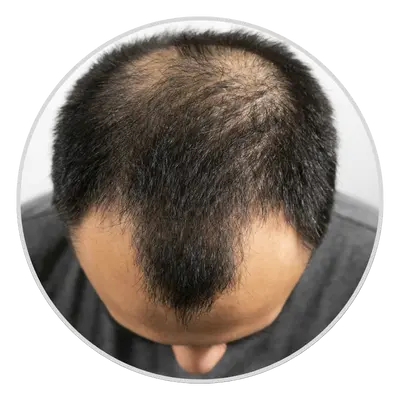
Androgenetic Alopecia
This is the most prevalent form of hair loss, caused by genetics and hormonal influence.
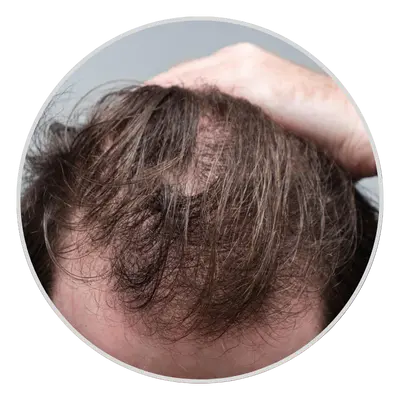
Traction Alopecia
Caused by tight hairstyles like braids, ponytails, or buns that pull on the roots, leading to gradual hair thinning, especially along the hairline.
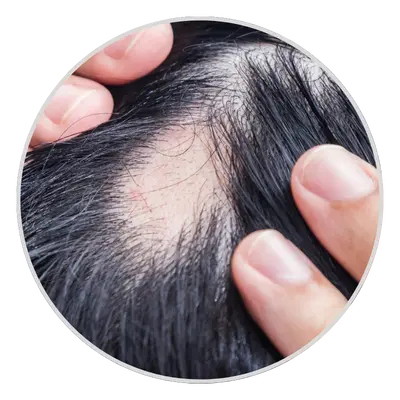
Alopecia Areata
An autoimmune condition where the immune system mistakenly attacks hair follicles, causing round, bald patches on the scalp or other areas of the body.
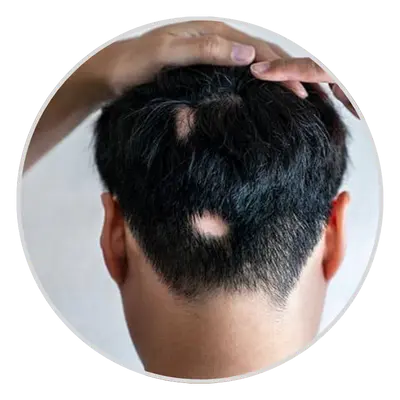
Traction Alopecia
Caused by tight hairstyles like braids, ponytails, or buns that pull on the roots, leading to gradual hair thinning, especially along the hairline.
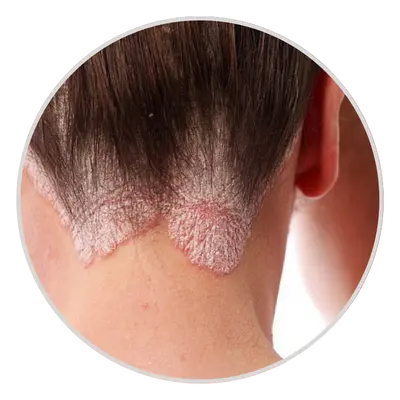
Tinea Capitis (Scalp Ringworm)
A fungal infection of the scalp that causes patchy hair loss with redness, itching, and flaking. It’s more common in children but can affect adults too.
While it’s normal to shed some hair daily, persistent or excessive hair loss could be a sign of an underlying issue that needs professional attention.
A Hair Specialist can help diagnose the cause and recommend the most effective treatment plan tailored to your condition.
If you notice large clumps of hair on your pillow, in the shower, or while combing, it could indicate a condition like telogen effluvium or an underlying health issue.
Whether it's a widening part, patchy scalp, or receding hairline, these are signs of pattern baldness or alopecia areata that require timely intervention.
These symptoms may point to scalp infections, psoriasis, or seborrheic dermatitis—all of which can lead to hair loss if untreated.
Hair that easily breaks or feels unusually dry may be suffering from nutritional deficiencies or damage from harsh styling and chemical treatments.
If baldness runs in your family, early consultation can help you delay or minimize its progression with preventive treatment strategies.
Life events like surgery, childbirth, COVID-19 recovery, or emotional stress can trigger temporary hair loss, which may need medical support to manage effectively.
How can I treat my Hair Loss more effectively without getting any complications?
Treating hair loss effectively begins with understanding its root cause. Since hair fall can be triggered by genetics, lifestyle, health conditions, or external damage, the approach to reversing or controlling it needs to be personalized. A proper diagnosis by a dermatologist is essential before beginning any regimen.
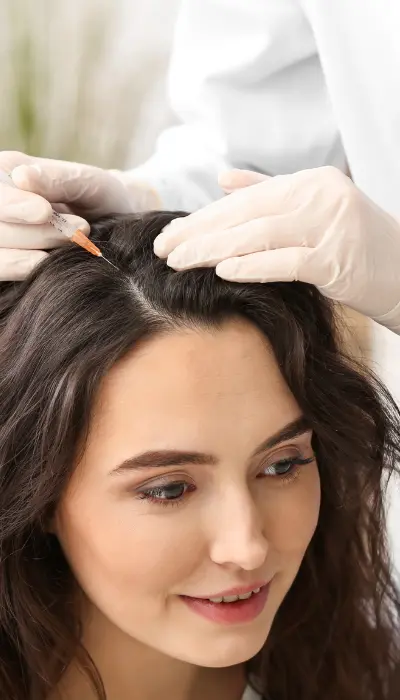
Identify the Cause
The first step is to determine why you're losing hair—whether it's hormonal, nutritional, genetic, or stress-related
Make Lifestyle Modifications
Hair health is often a reflection of overall health. Incorporating the following can significantly help A balanced diet rich in protein, iron, vitamins, and minerals, Adequate hydration
Improve Hair Care Habits
Harsh styling practices can damage the hair shaft and weaken follicles. Avoid excessive heat styling and chemical treatments. Use mild, sulfate-free shampoos
Address Nutritional Deficiencies
Supplements or dietary changes can correct deficiencies in iron, biotin, zinc, or vitamin D, which often contribute to hair thinning
Early Medical Intervention
If hair loss persists despite lifestyle changes, it’s time to consult a dermatologist.
Visible Hair Regrowth in Just Weeks with Hair Treatment at Eva Pimples, Skin & Hair Clinic, Pune is your trusted solution.

Experience the best hair loss treatment at Eva Pimples, Skin and Hair Clinic! Reclaim clear, radiant hair today. Call now to book your appointment and say goodbye to acne.
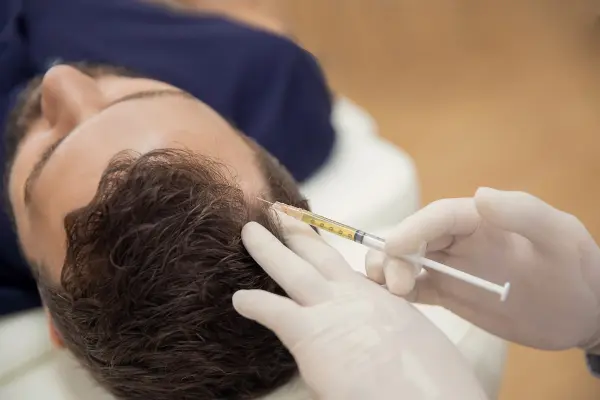
A safe, natural procedure that uses your own blood platelets to stimulate inactive hair follicles and promote new growth. Ideal for early-stage hair thinning.
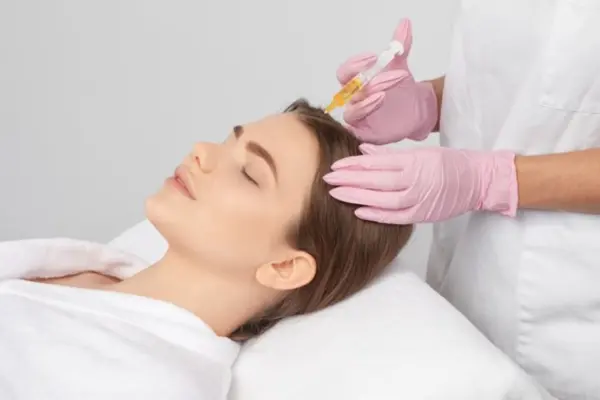
A micro-injection technique that delivers a custom cocktail of vitamins, minerals, and nutrients directly into the scalp to improve hair density and health.
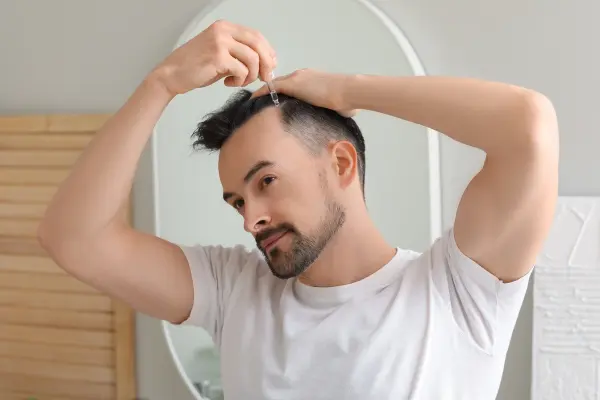
Hair Growth Serums
Clinically tested, dermatologist-prescribed serums help revitalize hair follicles and are often part of an integrated treatment plan.

Oral Medications & Supplements
Depending on the cause, dermatologists may prescribe FDA-approved oral medications or nutraceuticals to block DHT (a hair-loss hormone), improve scalp circulation, or correct deficiencies.
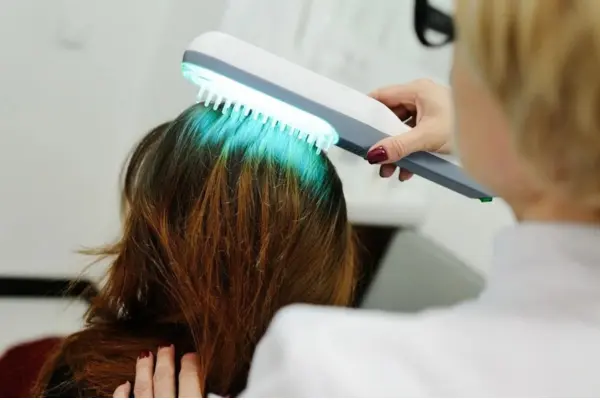
A painless and non-invasive treatment that uses red light therapy to stimulate hair follicles and increase blood flow to the scalp, encouraging hair regrowth.
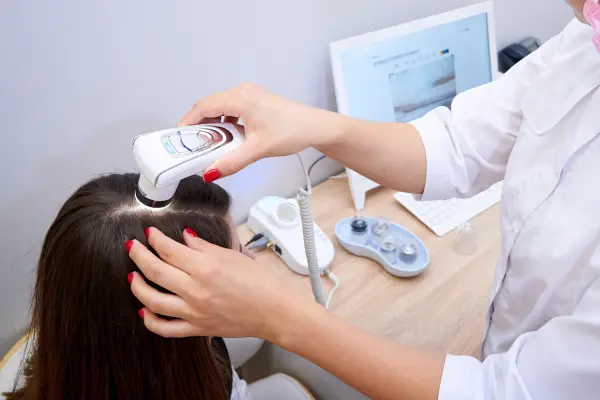
Scalp Detox
Specialized scalp treatments to remove buildup, reduce inflammation, and create a healthy environment for hair to grow stronger and thicker.
How to take Care After Hair Loss (Baldness) Treatment
Avoid Washing Hair for 24–48 Hours
Give your scalp time to absorb the injected nutrients fully. Refrain from using shampoo or rinsing your hair for at least 24–48 hours post-treatment.
Stay Away from Direct Sunlight & Heat
Avoid exposure to direct sunlight, steam rooms, saunas, and high-heat hair tools (like dryers and straighteners) for 48–72 hours to prevent irritation and sweating.
No Heavy Exercise for 1–2 Days
Minimize intense workouts, swimming, or any activity that causes excessive sweating to reduce the risk of infection or irritation on the scalp.
Avoid Hair Styling Products
Don’t apply gels, sprays, oils, or serums for a few days after treatment to avoid interfering with the scalp’s healing process.
Follow the Prescribed Supplements
If your dermatologist recommends oral supplements (like biotin or iron) or topical applications (like minoxidil), be consistent to enhance and maintain results.
Cost of Hair Loss Treatment in Pune
At Eva Pimples, Skin & Hair Clinic, we offer transparent pricing, certified dermatologists, and results-driven hair restoration plans—all under one roof.
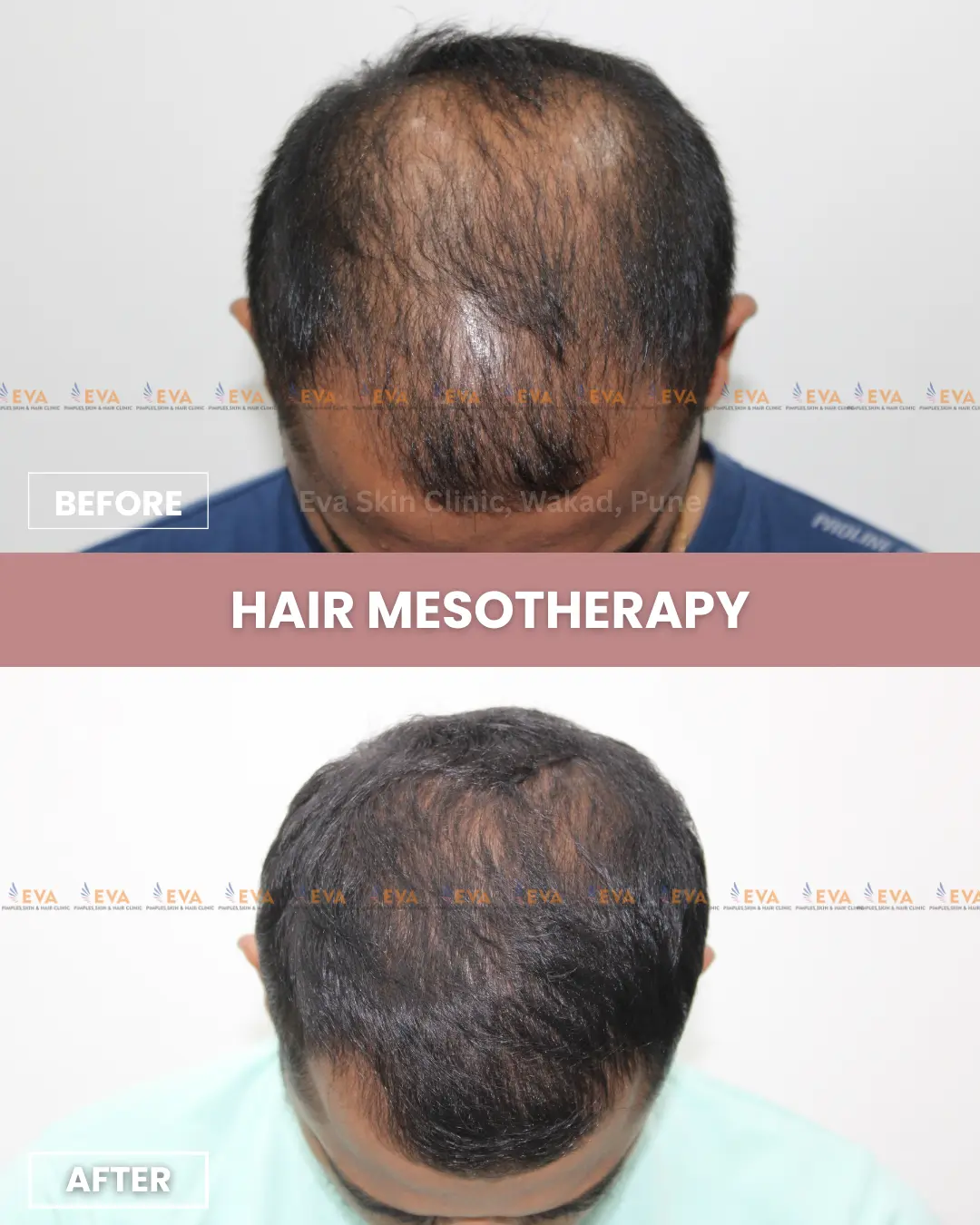
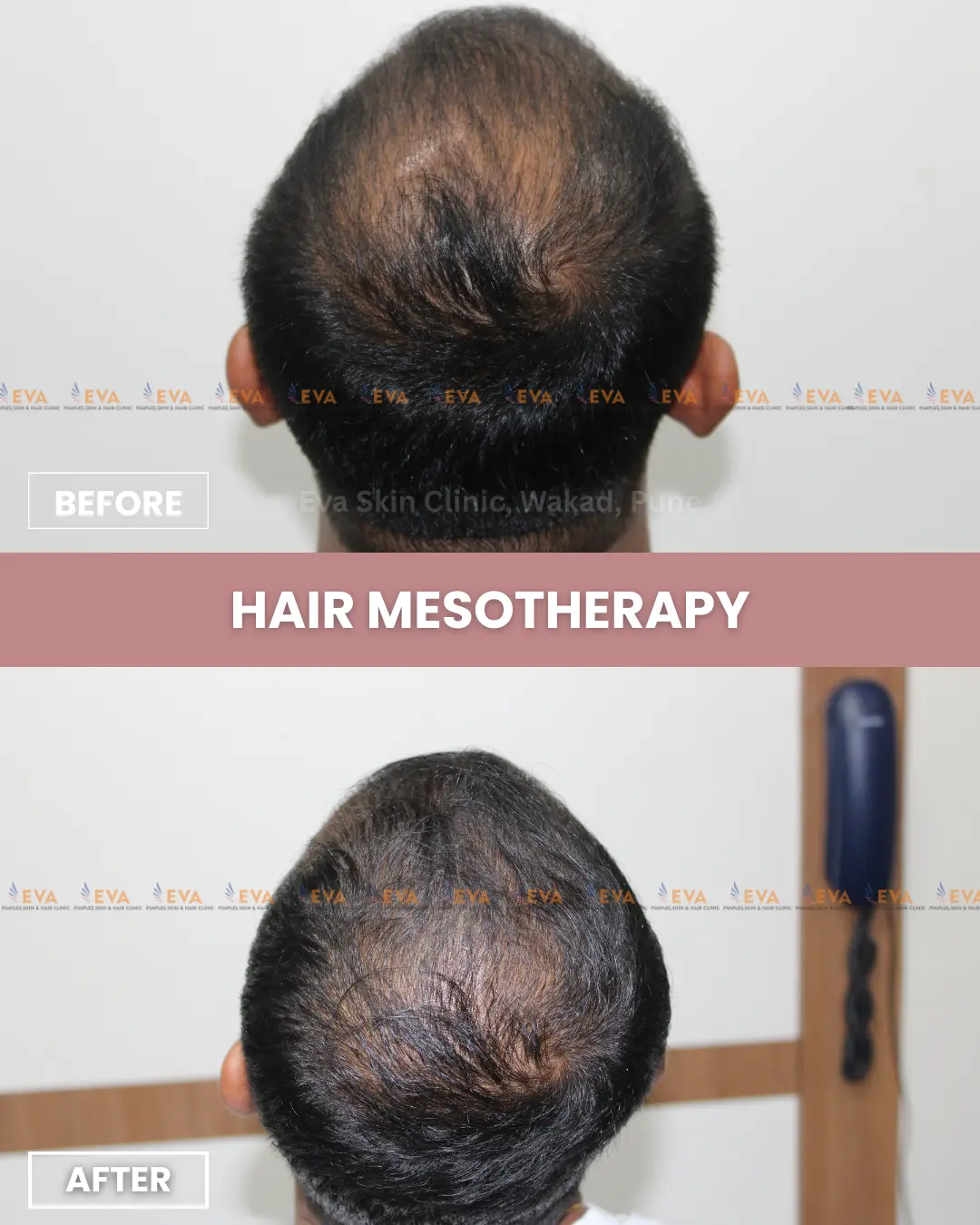
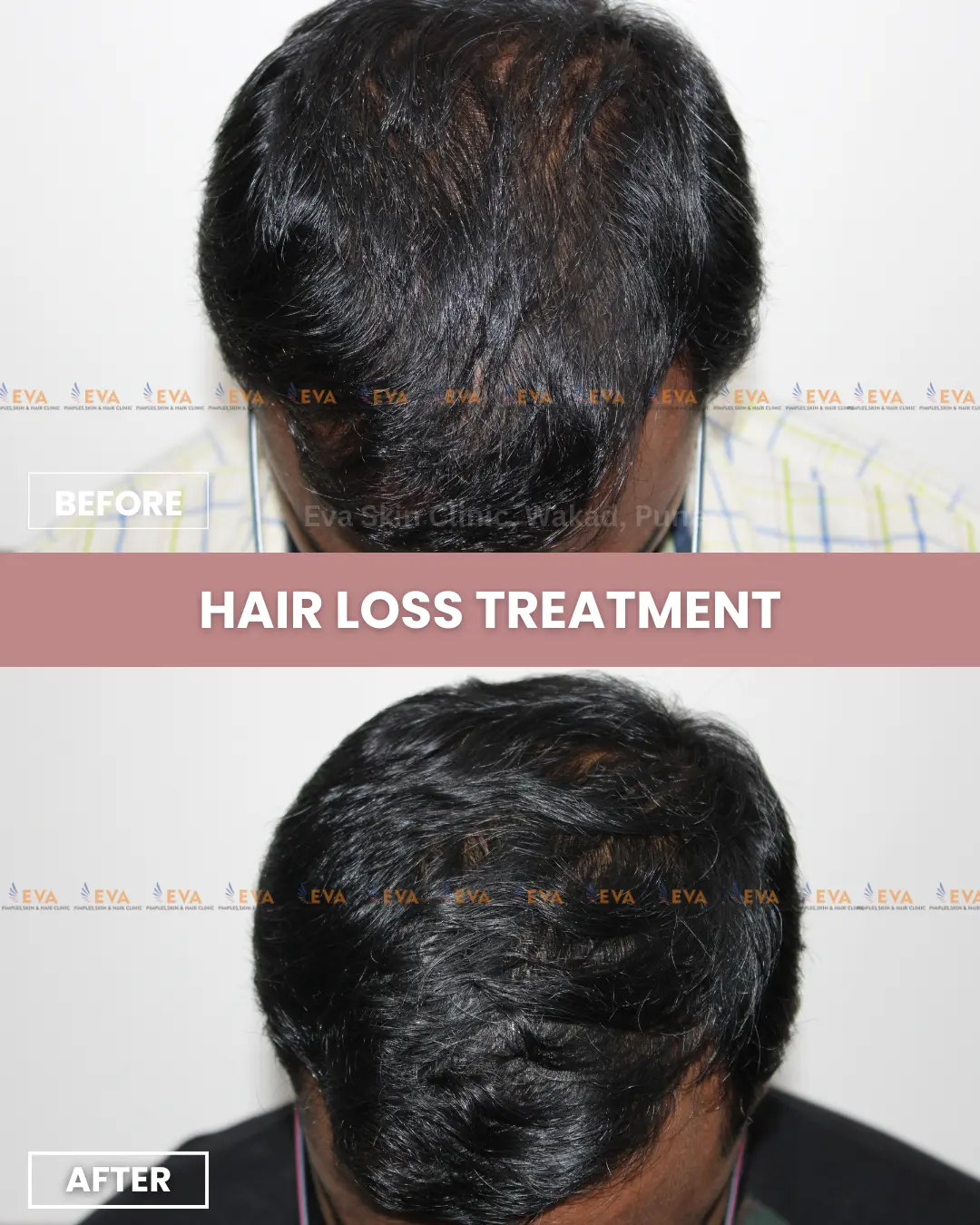
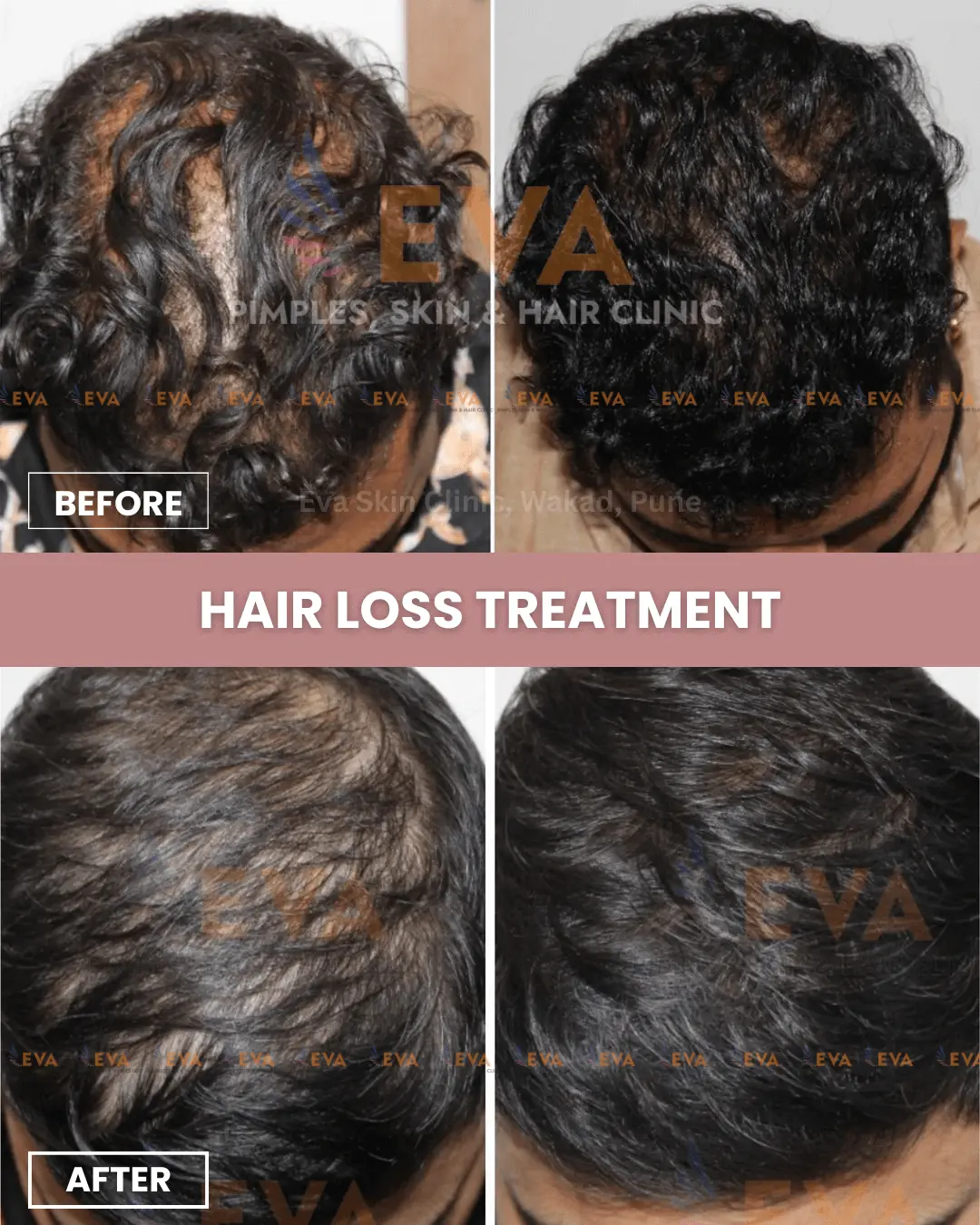
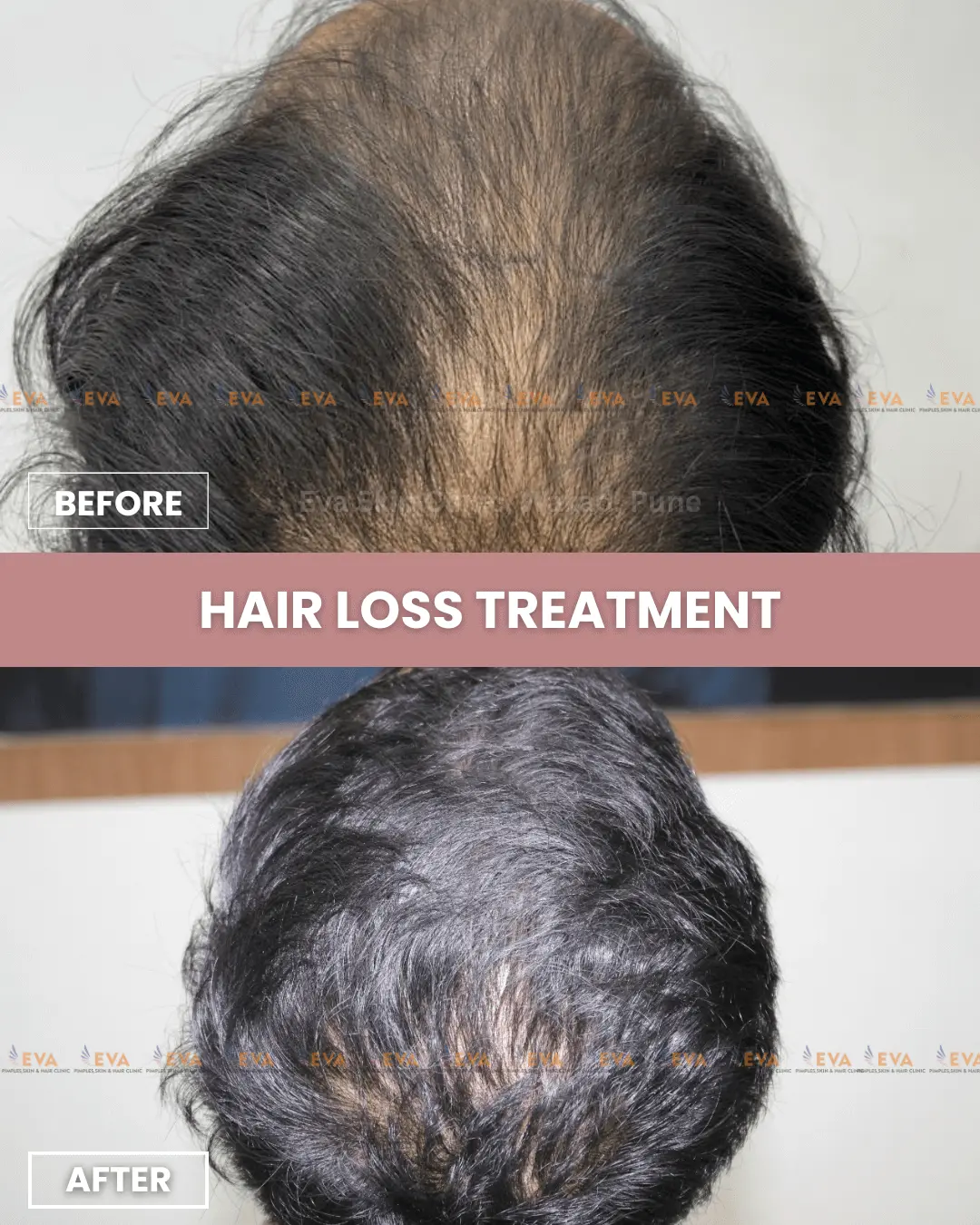
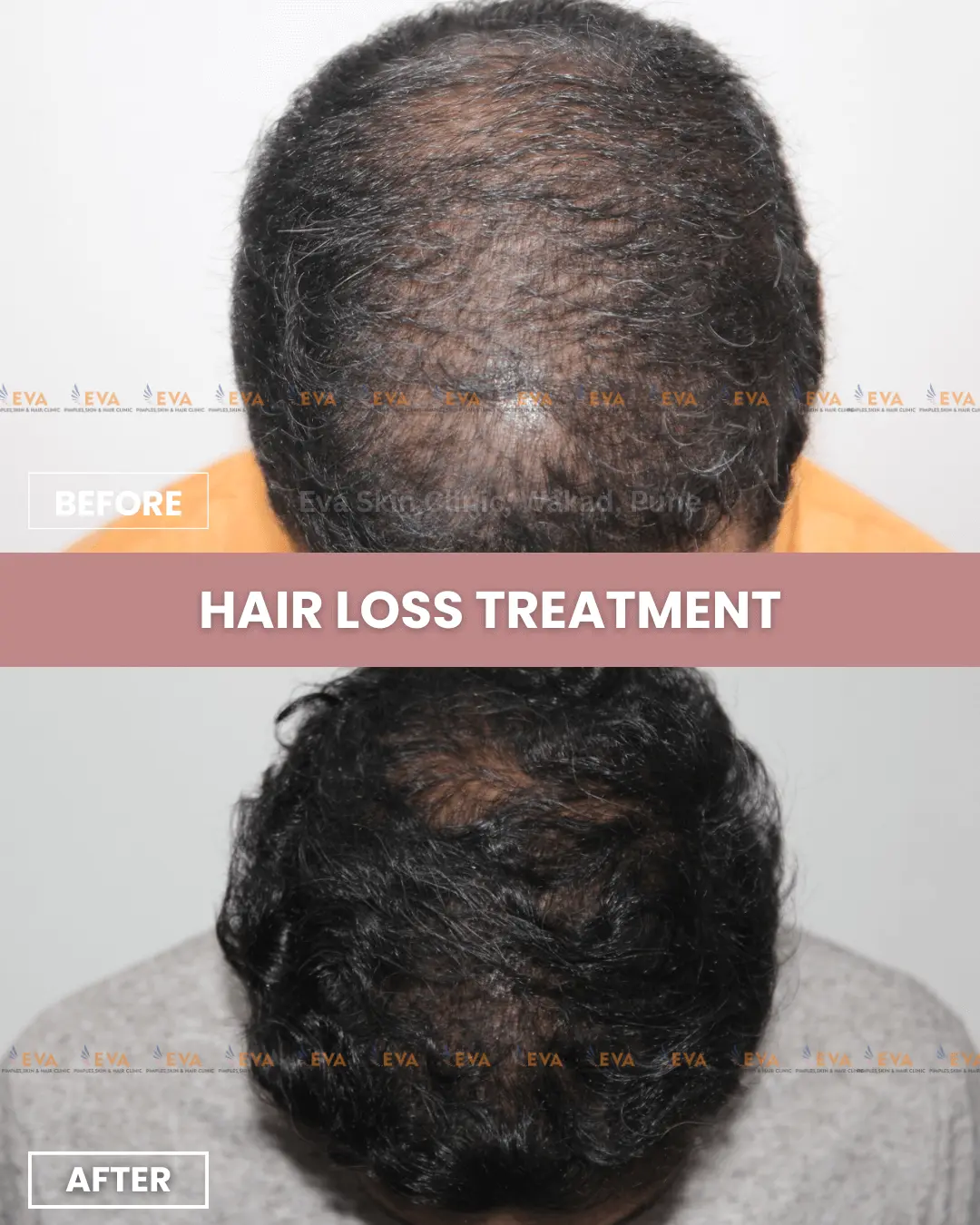
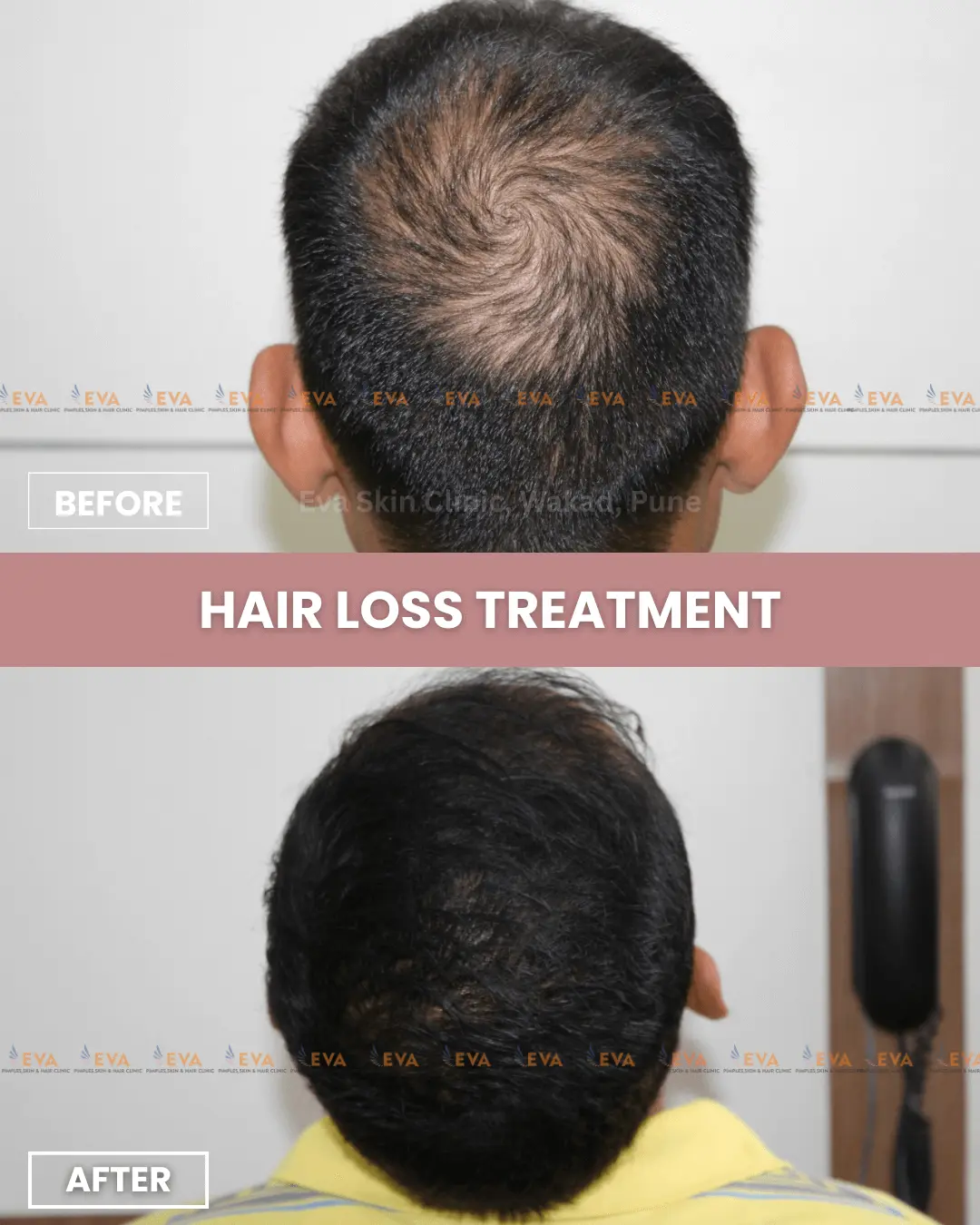
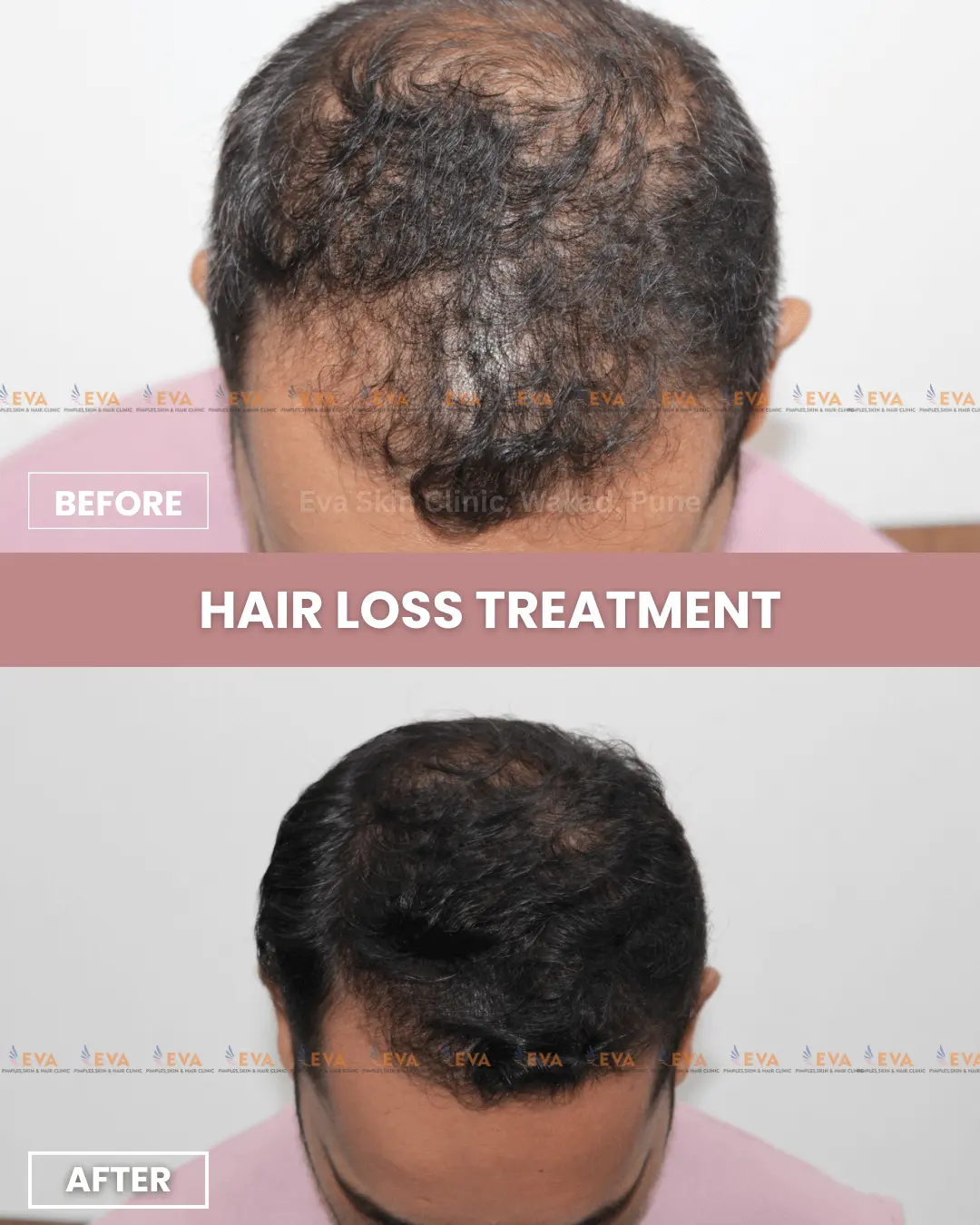
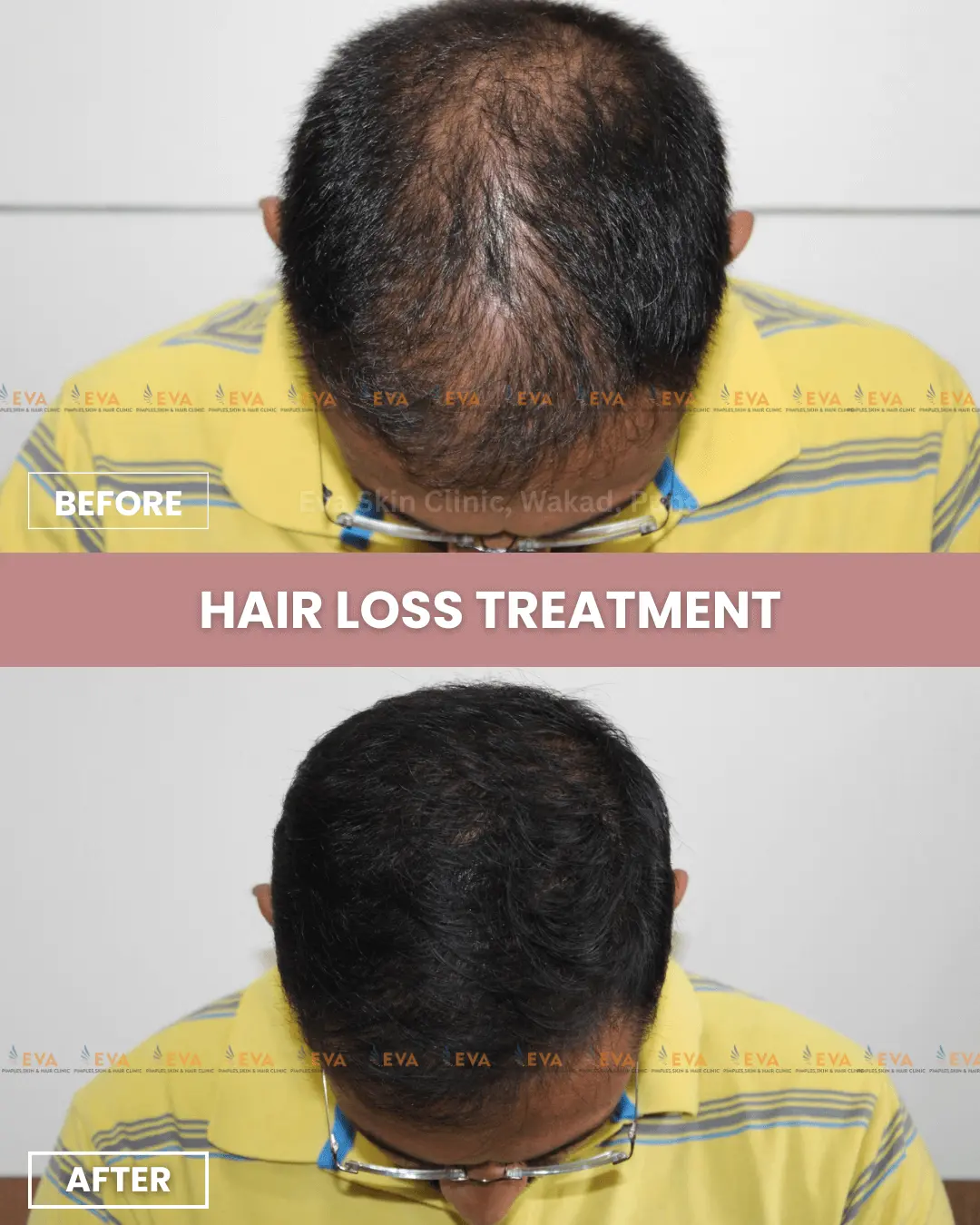
Real results from Real Patients. Your transformation could be next.
From Hair Fall to Hair Confidence with customized Treatment
just like 6,000+ of our happy patients!
Because Happy Skin Tells the Best Stories
Posted onTrustindex verifies that the original source of the review is Google. I visited the doctor for a scar, and the treatment was excellent. The doctor was very professional, and I’m extremely satisfied with the results. My scar is gone now.Posted onTrustindex verifies that the original source of the review is Google. Best one!Posted onTrustindex verifies that the original source of the review is Google. I visited Dr. Shalthiel sathe sir@ Eva skin and hair clinic for long-standing acne issues and the results have been amazing. The doctor explained everything clearly and suggested a personalized treatment plan. The medicines worked well without any side effects. The clinic atmosphere is clean and welcoming. I would confidently recommend Eva skin & Hair clinic to anyone struggling with pimples.Posted onTrustindex verifies that the original source of the review is Google. Had a wonderful experience at the clinic. The doctor explained all my concerns clearly and suggested the necessary treatment. The treatment is going well so far. I would definitely recommend this clinic.Posted onTrustindex verifies that the original source of the review is Google. Positive Experience.Load more
